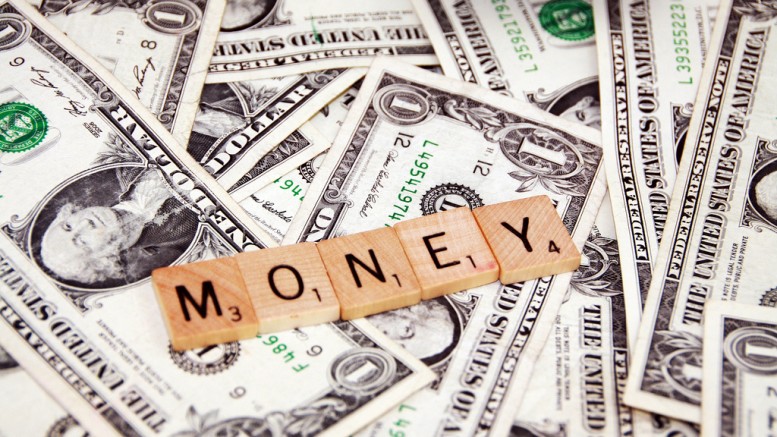Why cancer treatment drugs are two times more expensive in the United States than in Europe?
Are American cancer drugs two times more expensive than European one, or is the life of an American cancer patient worth half than the life of an European one? In her new presidential campaign, the Democratic candidate Hillary Clinton clearly explained how pharmaceutical companies are taking “excessive profiteering” out the drugs market.
The average price for the newer cancer drugs is way unbalanced in the United States. Even though the pharmaceutical companies need to earn their share of profits after the large investments made to develop a new drug, in the US patients pay up to 600 times the initial value of a given medication.
And for no reason at all, the same drug bought in Europe is priced double if you buy it in the US. That’s for example the case of the tyrosine kinase inhibitors (TKIs), a potent new class of oral chemotherapy drugs with much lighter side effects than conventional treatments.
An independent analysis performed by the British pharmacologist Andrew Hill of the University of Liverpool pinpointed how unreasonably higher are cancer drugs’ cost in the US compared to Europe. His study is going to be presented at the Sept. 25-29 European Cancer Congress in Vienna, but he will also share his findings on the cost of producing TKIs (and the consequent profits) with the World Health Organization (WHO). Due to the much lower quantity of side effects and better safety profile, the WHO is probably going to add additional TKIs to the list of medicines deemed essential for a basic healthcare system, and will investigate on the real (much lower than the one declared by the Big Pharmas) cost required to produce these drugs.
[wp_ad_camp_3]
Hill’s finding clearly showed that mass production can lower TKIs price down to $159 to $4,022 per person a year, instead of the crazy prices that pharmaceutical companies charge for these drugs today. A TKI yearly price in the US ranges between $75,000 to over $100,000 per person.
“It shows there is a lot of scope for prices to come down,” he said. “There has to be some middle ground between the prices that companies are charging, which may not even be cost-effective by the standards set by some healthcare authorities, and the actual production cost.”
TKIs price is also going to rapidly fall down within the next few years, as soon as newer generics are produced when their patents will expire.
THE PRICE OF RESEARCH
Pharmaceutical companies complain that much of the cost charged for the newer drugs is required to cover for the huge expenses they sustained to research them. They also claim that a large portion of their profits is thus re-invested in researching newer drugs with less side effects and safer, more effective medications. Some companies also provide low-cost or even free access schemes for the poorest patients who could not buy their medicines, however the increasingly high cost of these drugs has caused a signficant push-back from healthcare providers, patients and even doctors.
Following Hill’s calculations, even with a 50% profit margin, the cost of many drugs should be several figures lower than the one pharmaceutical companies are charging for. For example Roche’s lung cancer drug Tarceva should cost $236 for a yearly treatment, Novartis’ leukaemia drug Glivec should cost $159, and the same company’s Tykerb should cost $4.000. The actual prices charged in the US are amazingly higher: $79,000, $106,000 and $74,000 respectively. What’s even more embarrassing is that the same drugs’ prices in Europe are close to one third, or even less. Tarceva costs approximately $26,000-29,000, Glivec $29,000-35,000 and Tykerb around $35,000. Why? Nobody seems to have any explanation, not even the same Big Pharmas: Roche in fact declined to comment, while Novartis explained that… they had no immediate response. Other drugs other than cancer ones, like the newly injectable cholesterol drug Repatha, do cost much less in Europe rather than in the US, sometimes half the price, sometimes even less.
“Why should the U.S. bear this huge burden cost? It is not as if the GDP of the United States is so much higher than that of European counties, but they just seem to pay these big premiums,” Hill said. Hill also believes that if TKIs price is going to be adequately reduced in the near future, developing and third-world countries could also gain great benefits. Just like when generic drugs make HIV/AIDS much cheaper helping in the never-ending fight against this epidemic in Africa and Asia, newer cancer drugs may help spread out cancer treatment in the poorest corners of the world.
Article By Claudio Butticè
REFERENCES
- Ben Hirschler. Exclusive: Americans overpaying hugely for cancer drugs – study. Reuters, Sep 22, 2015
- University of Liverpool. Americans overpaying for cancer drugs, say researchers. News.liverpool.ac.uk September, 24, 2015
- Andrew Hill, Saye Khoo, Joe Fortunak, Bryony Simmons, and Nathan Ford. Minimum Costs for Producing Hepatitis C Direct-Acting Antivirals for Use in Large-Scale Treatment Access Programs in Developing Countries. Clin Infect Dis. first published online January 6, 2014 doi:10.1093/cid/ciu012
